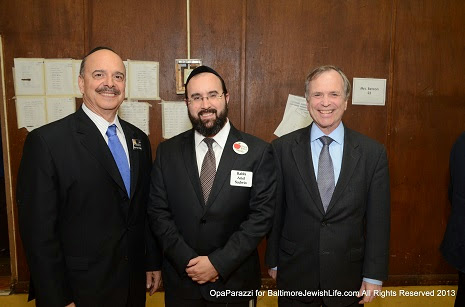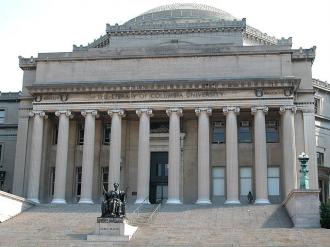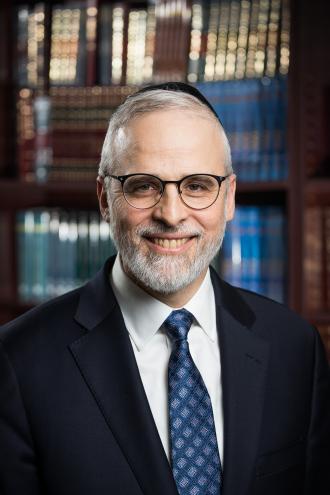With the start of a new legislative season only weeks away, much attention has been focused on the goals for the 2014 session of the Maryland General Assembly. After record-breaking allocations from the State of Maryland for the benefit of nonpublic schools and students in 2013, there is much hope for additional success in 2014. To that end, the nonpublic school communities across Maryland held legislative forums and open houses - arranged by Maryland CAPE (Council of American Private Education) and the Maryland Catholic Conference - over the last couple of weeks to enable school officials and parents to meet and interact with the legislators in their area districts.
In Baltimore, the legislative forum for the 10th , 11th, and 42nd Districts (which house the majority of Baltimore’s Jewish schools) was held this week at Talmudical Academy of Baltimore (TA). A crowd of 75 people from the faith-based education community joined seven legislators to engage in constructive dialogue relevant to the plight of nonpublic schools vis-à-vis government funding. Representing the 10th District was Senator Delores Kelley and Delegate Adrienne Jones. Representing the 11th District was Senator Bobby Zirkin, and Delegates Dan Morhaim, Dana Stein, and Jon Cardin. Rounding out the legislative panel was Del. Sandy Rosenberg, whose 41st District houses the largest number of community households.
The event opened with words of introduction from Mr. Ari Krupp, Talmudical Academy’s Chairman of the Board. Mr. Krupp shared some of the long and storied history of TA and expressed his appreciation for the invaluable programs afforded to the schools via the state legislature. He then introduced Rabbi Ariel Sadwin, the director of Agudath Israel of Maryland – Mid-Atlantic Region and president of Maryland CAPE to chair the program. Rabbi Sadwin began by sharing with the assembled the recent expansion of Maryland CAPE activities, bringing together the entire spectrum of nonpublic schools in Maryland to keep them better informed of what is available to them via government aid. He also went through some information on the 2013 increase in allocations in the state’s budget to allow for the expansion of the nonpublic school textbook/technology program and for the foundation of the nonpublic aging schools grant program. He then introduced Mr. Garrett O’Day, deputy director of the Maryland Catholic Conference, who spoke about the prime legislative goal for 2014, passing the Maryland Education Credit bill. Once known as BOAST, this legislation seeks to create a scholarship program based around corporate tax credits which would be given to donors of education scholarships.
Each of the seven legislators were then introduced and given a chance to share their thoughts and perspectives on the various nonpublic school programs and on the general topic of government funding of nonpublic education. Their perspectives ranged from supportive of these programs to those with concerns on how this will affect the public schools and whether it is a worthy use of government funds. Some commented on the fact that this is a divisive issue and many legislators would rather avoid taking a stand on it leading up to an election year.
Towards the close of the program, the floor was opened up for questions. A number of attendees raised questions on some of the concerns that the legislators mentioned, comparing the increased services and larger amount of funds allocated to nonpublic schools in some of the other states in the region to that of Maryland.
While not everything that was said was completely pleasing to the gathered community members, they nonetheless appreciated the opportunity to be afforded a better understanding of the legislative process and to see the hard work of the community’s nonpublic school advocates.

















